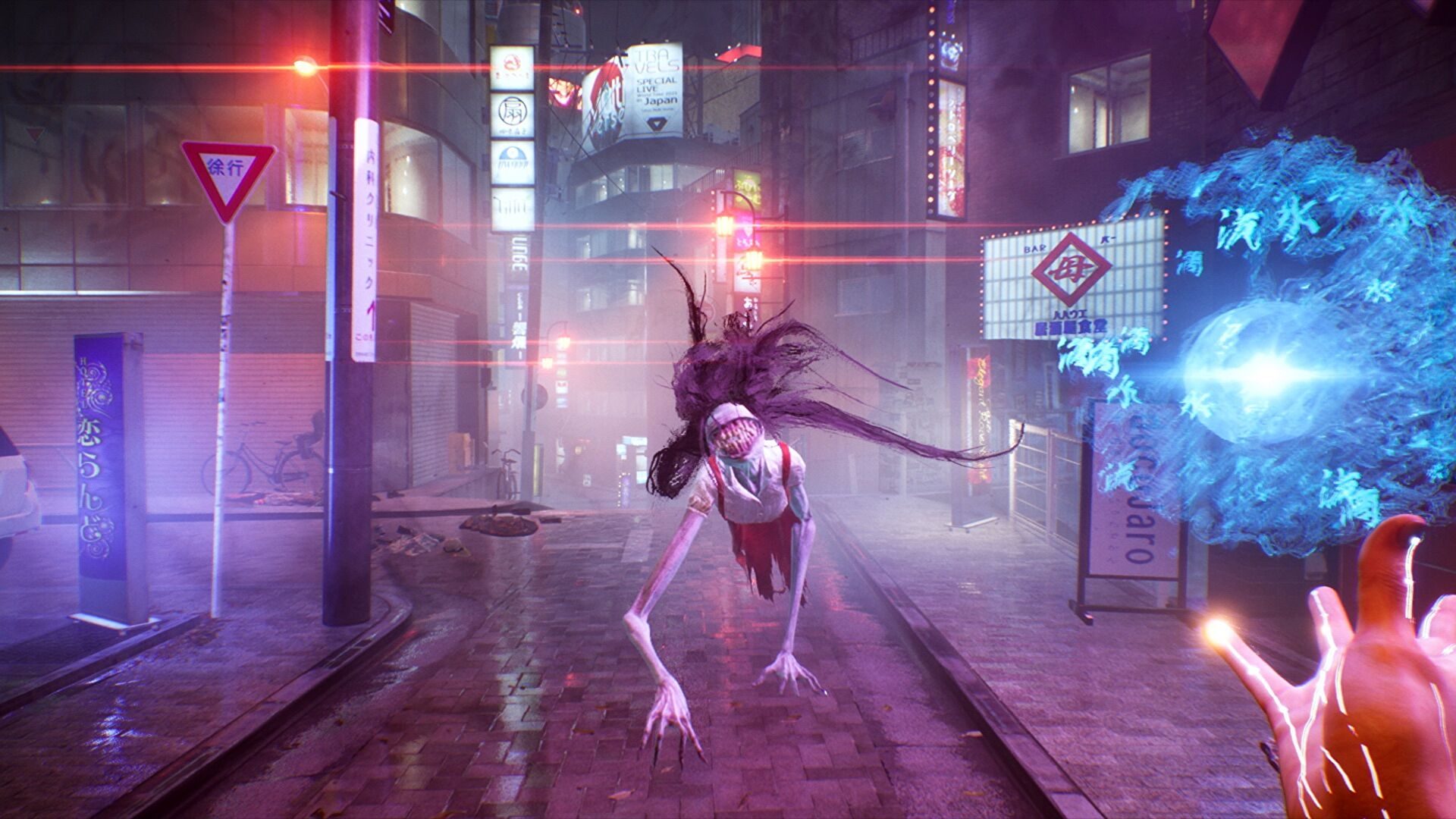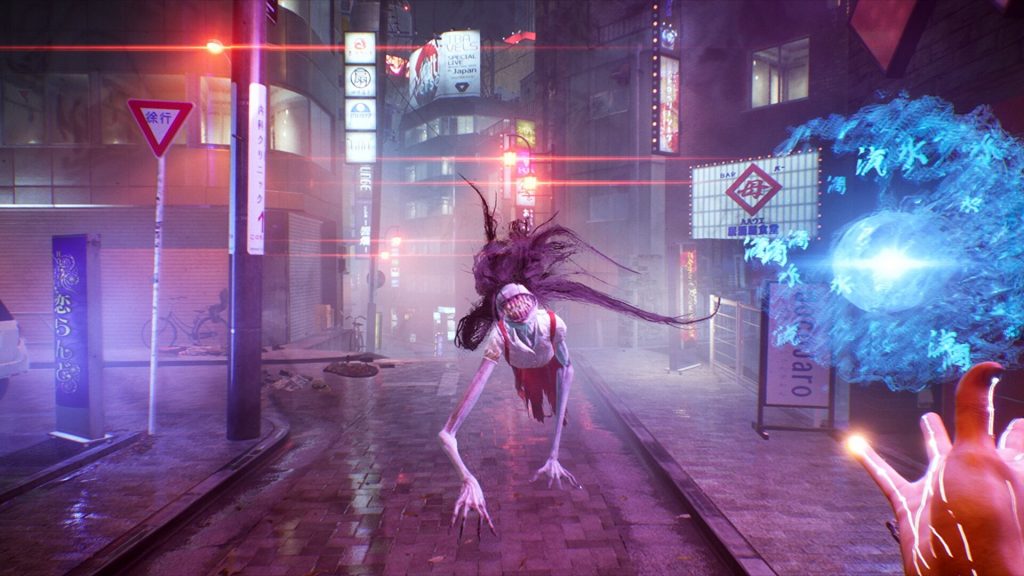
Ghostwire: Tokyo’s exploration loop is a brilliantly elaborate conceptual pun. It is this game’s version of the ‘Tower Unfogs Map’ mechanic popularised by Assassin’s Creed. Here, instead of climbing stuff and checking your watch as the camera whips around some murderous aristocrat holding an unlikely pose atop the Bastille (or whatever), you cleanse Torii gates of demonic influence, which rather usefully clears the streets of literal fog. I’m not sure if it’s intended to be funny, but regardless, it’s a smirk-worthy meta-twist on a now ubi-quitous gaming trope that can be found everywhere from Zelda to Mad Max.
It’s become something of a lightning rod for online complaints about the predictability of open-world design. The dreaded Ubisoft Towers; their mere presence implying that whatever game they loom over is, often in stark contrast to pre-release marketing, another bloated Icon Janitor sim. Another ‘Assassin’s Creed But’.
Assassin’s Creed but… you’re hunting robot dinosaurs. Assassin’s Creed but… you’re Spider-Man. Assassin’s Creed but… you’re in a vaguely problematic caricature of Cuba, and the bad guy from Breaking Bad has been given about three minutes of screen time in a desperate attempt to lend this bollocks some prestige. The sheer number of these games seems excessive, especially considering that Assassin’s Creed itself comes in a multitude of flavours spanning the entire latter half of recorded history, encompassing genres as disparate as stealth action, pirate simulator, and Copying The Witcher 3.
